Medical articles
What are potential risks of using too many antibiotics?
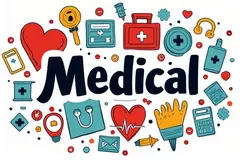 Understanding the Risks of Overusing Antibiotics
The widespread use and overprescription of antibiotics have raised significant concerns among healthcare professionals and researchers. While these medications are crucial for treating bacterial infections, their misuse can lead to severe consequences that affect both individual health and public safety.
Risks... read more...
Understanding the Risks of Overusing Antibiotics
The widespread use and overprescription of antibiotics have raised significant concerns among healthcare professionals and researchers. While these medications are crucial for treating bacterial infections, their misuse can lead to severe consequences that affect both individual health and public safety.
Risks... read more...
How can one recognize a seizure early on?
 Seizures can be unpredictable and frightening, but recognizing the early signs of a seizure can help you or someone else receive prompt medical attention. This article aims to provide comprehensive guidance on identifying seizures before they occur, ensuring that you are well-prepared to handle such situations effectively.
Spotting Seizure Symptoms Early
The... read more...
Seizures can be unpredictable and frightening, but recognizing the early signs of a seizure can help you or someone else receive prompt medical attention. This article aims to provide comprehensive guidance on identifying seizures before they occur, ensuring that you are well-prepared to handle such situations effectively.
Spotting Seizure Symptoms Early
The... read more...
Is ibuprofen safe during pregnancy?
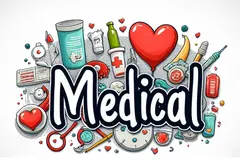 Pregnancy is a delicate time, and managing discomfort can be challenging. One common question among expectant mothers is whether it's safe to take ibuprofen during pregnancy. This article delves into the safety of using ibuprofen while expecting, addressing concerns about its risks and benefits across different trimesters.
Can Pregnant Women Safely Take... read more...
Pregnancy is a delicate time, and managing discomfort can be challenging. One common question among expectant mothers is whether it's safe to take ibuprofen during pregnancy. This article delves into the safety of using ibuprofen while expecting, addressing concerns about its risks and benefits across different trimesters.
Can Pregnant Women Safely Take... read more...
How does aspirin help with heart health?
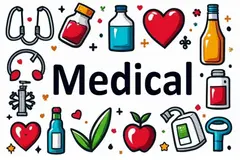 Aspirin, a common over-the-counter medication, has long been recognized for its ability to alleviate pain and reduce inflammation. However, its role in heart health is equally significant. This article delves into the mechanisms by which aspirin protects your heart and reduces cardiovascular risks.
Aspirin's Role in Heart Health
The primary function of... read more...
Aspirin, a common over-the-counter medication, has long been recognized for its ability to alleviate pain and reduce inflammation. However, its role in heart health is equally significant. This article delves into the mechanisms by which aspirin protects your heart and reduces cardiovascular risks.
Aspirin's Role in Heart Health
The primary function of... read more...
What is tuberculosis treatment?
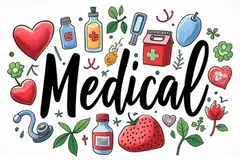 Understanding TB Treatment Protocols
Tuberculosis (TB) treatment protocols are designed to effectively manage and cure the disease, ensuring patients receive the necessary medications in a structured manner. These protocols vary based on factors such as drug resistance, patient health status, and geographical location.
The primary goal of TB treatment is to... read more...
Understanding TB Treatment Protocols
Tuberculosis (TB) treatment protocols are designed to effectively manage and cure the disease, ensuring patients receive the necessary medications in a structured manner. These protocols vary based on factors such as drug resistance, patient health status, and geographical location.
The primary goal of TB treatment is to... read more...
What are the benefits of eating a whole-foods diet?
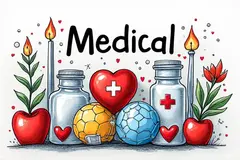 Boost Your Health with Whole Foods
Eating a whole-foods diet is one of the best ways to improve your overall well-being. A whole-foods diet consists primarily of unprocessed or minimally processed foods that are rich in nutrients and free from artificial additives, preservatives, and other unhealthy ingredients. By incorporating more whole foods into your... read more...
Boost Your Health with Whole Foods
Eating a whole-foods diet is one of the best ways to improve your overall well-being. A whole-foods diet consists primarily of unprocessed or minimally processed foods that are rich in nutrients and free from artificial additives, preservatives, and other unhealthy ingredients. By incorporating more whole foods into your... read more...
How does HIV progress without treatment?
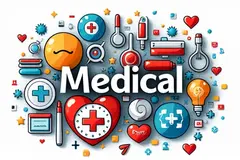 HIV, or Human Immunodeficiency Virus, is a serious condition that can lead to severe health complications if left untreated. Understanding how HIV progresses without treatment is crucial for those who are diagnosed and for their loved ones. This article delves into the stages of HIV progression, the risks associated with untreated infection, and the... read more...
HIV, or Human Immunodeficiency Virus, is a serious condition that can lead to severe health complications if left untreated. Understanding how HIV progresses without treatment is crucial for those who are diagnosed and for their loved ones. This article delves into the stages of HIV progression, the risks associated with untreated infection, and the... read more...
Is it safe to take aspirin every day for heart health?
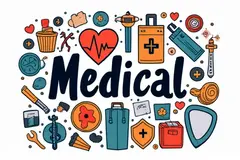 Is Daily Aspirin Good for Heart Health?
Aspirin has long been hailed as a wonder drug, with its ability to reduce inflammation and thin the blood making it a go-to medication for heart health. However, the question of whether daily aspirin use is safe and effective remains a topic of debate among healthcare professionals and patients alike.
Risks of Daily... read more...
Is Daily Aspirin Good for Heart Health?
Aspirin has long been hailed as a wonder drug, with its ability to reduce inflammation and thin the blood making it a go-to medication for heart health. However, the question of whether daily aspirin use is safe and effective remains a topic of debate among healthcare professionals and patients alike.
Risks of Daily... read more...
Why might someone need an MRI scan for?
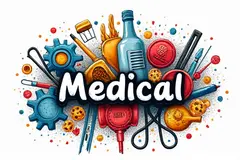 Why Might Someone Need an MRI Scan?
Magnetic Resonance Imaging (MRI) is a powerful diagnostic tool that provides detailed images of the body's internal structures. It is particularly useful in identifying and diagnosing various medical conditions, especially those involving soft tissues like muscles, ligaments, tendons, and organs. This article explores when... read more...
Why Might Someone Need an MRI Scan?
Magnetic Resonance Imaging (MRI) is a powerful diagnostic tool that provides detailed images of the body's internal structures. It is particularly useful in identifying and diagnosing various medical conditions, especially those involving soft tissues like muscles, ligaments, tendons, and organs. This article explores when... read more...
Is it safe to take calcium supplements?
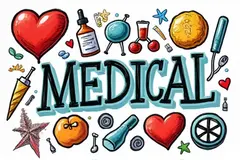 Calcium is a vital mineral essential for bone health, muscle function, and overall well-being. However, the question of whether calcium supplements are safe has sparked considerable debate among healthcare professionals and consumers alike. This article delves into the safety concerns surrounding calcium supplementation, providing insights from scientific... read more...
Calcium is a vital mineral essential for bone health, muscle function, and overall well-being. However, the question of whether calcium supplements are safe has sparked considerable debate among healthcare professionals and consumers alike. This article delves into the safety concerns surrounding calcium supplementation, providing insights from scientific... read more...
Can probiotics affect thyroid function?
 The relationship between gut health and overall well-being has gained significant attention in recent years. One area of interest is the potential impact of probiotics on thyroid function. This article delves into whether probiotics can influence thyroid activity, providing insights for individuals looking to optimize their thyroid health.
Do Probiotics... read more...
The relationship between gut health and overall well-being has gained significant attention in recent years. One area of interest is the potential impact of probiotics on thyroid function. This article delves into whether probiotics can influence thyroid activity, providing insights for individuals looking to optimize their thyroid health.
Do Probiotics... read more...
What are the main symptoms of hypothyroidism?
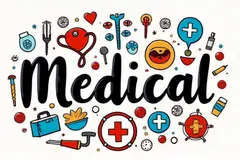 Recognizing Hypothyroidism Symptoms: A Comprehensive Guide
Hypothyroidism, a condition characterized by an underactive thyroid gland, affects millions of people worldwide. Understanding the symptoms is crucial for early detection and effective management. This article delves into the major indicators of hypothyroidism to help you recognize this common... read more...
Recognizing Hypothyroidism Symptoms: A Comprehensive Guide
Hypothyroidism, a condition characterized by an underactive thyroid gland, affects millions of people worldwide. Understanding the symptoms is crucial for early detection and effective management. This article delves into the major indicators of hypothyroidism to help you recognize this common... read more...